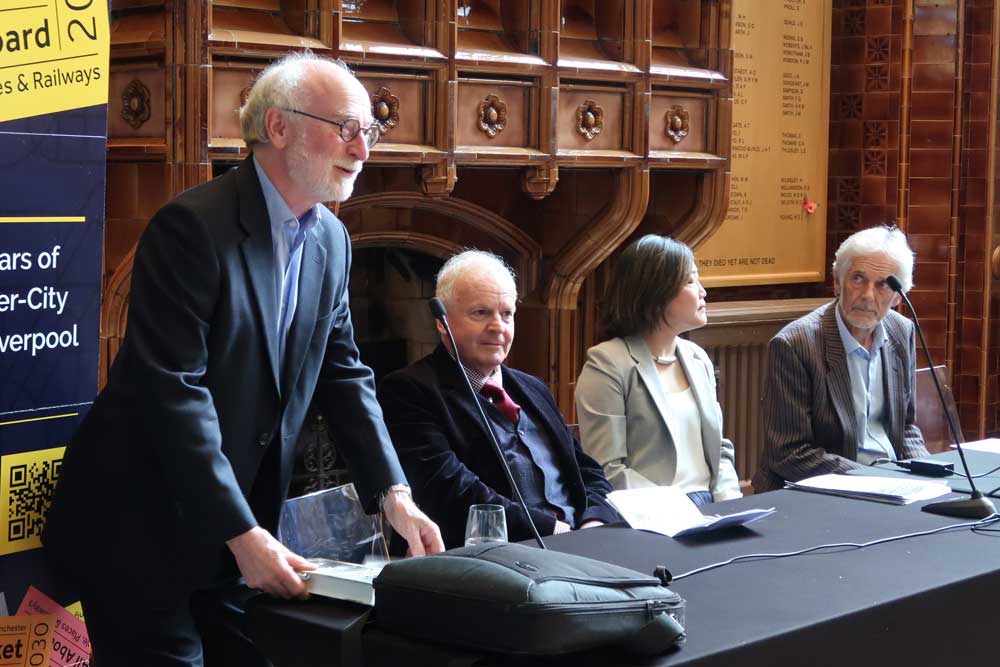
As part of this year’s British Science Festival, The Heritage Institute were delighted to host a day of activities on Saturday 13th September to launch Rocket: All Aboard!, our countdown to the bicentenary of the Liverpool to Manchester Railway (1829–1830).
Supported by the Rocket: All Aboard! partnership and funded through the British Science Festival and the National Lottery Heritage Fund, the day brought together researchers, heritage partners, creative practitioners, policymakers, and members of the public to celebrate the pioneering legacy of the world’s first inter-city passenger line.
The daytime programme, held at Metal Culture, Edge Hill Station featured two creative workshops:
- The Future of Rail – All Aboard for Tomorrow! invited participants to imagine rail travel 200 years from now, exploring questions around greener journeys, who will run the railways, and how new connections might bring communities closer together.
- All Aboard: Writing the Journey – A Metropoetry Workshop encouraged participants to experience the Liverpool–Manchester route through movement, observation, and writing, experimenting with the poetic form of the “metropoem” to capture the rhythm and spirit of the journey.
Over 60 people registered to join us in the evening, for a panel discussion hosted at the Victoria Gallery & Museum — a fitting heritage setting located across from the former Crown Street Station site at University Square.
Chaired by Professor Ian Wray (Heseltine Institute), our panel comprised three leading experts in rail history, planning and engineering. Dr David Gwyn opened the debate reflecting on the innovation that changed the world. Dr Chia-Lin Chen followed, with an in-depth consideration of the impact of high-speed rail development in China and David Thrower closed out the formal presentations by offering his thought from a strategic perspective drawing on his extensive experience as a senior transport planner for the region. Conversation spanned decarbonisation, digital innovation, regional equity, and workforce development.
Professor Wray reflected:
“This truly was a synoptic discussion. We ranged widely from the history of early railways and the symbolism of the structures near the original Liverpool Crown Street station (echoing the frontispiece of Bacon’s Novum Organum), to Chinese high speed rail projects, to future rail strategy for the North West.”
The day offered a wonderful mix of creative exploration and critical debate — a fitting way to kick off the bicentenary programme and open up new conversations about the future of rail in the UK and beyond.